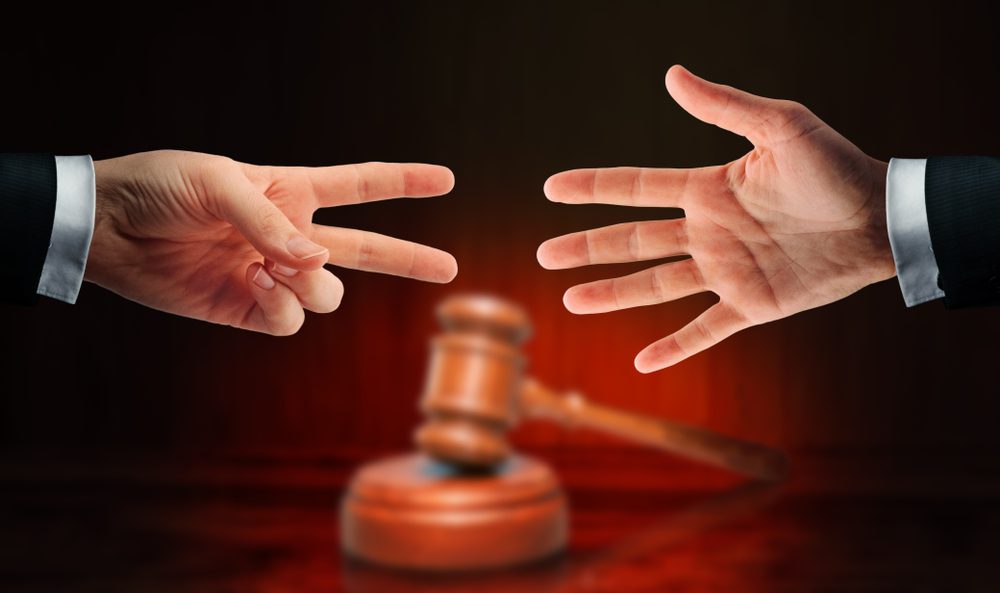Advertiser Disclosure: Many of the companies featured here provide compensation to us. This is how we maintain our free service for consumers. Compensation, along with hours of in-depth editorial research, determines where & how companies appear below.
If you’re constantly getting calls and letters from a debt collection agency like American Recovery Service, it’s normal to feel stressed out and worried about your financial future. After all, nobody expects to be harassed and bullied by a company to owe money. However, there are things you can do to ease your anxiety and take back control.
If you find yourself in this situation, do not let the harassment get to you. American Recovery Service may be a debt collector, but you have legal rights and protections that they have to respect. There are also certain defenses you can raise if they sue you to try and collect on an alleged delinquent debt. With these affirmative defenses, you could prevail over the debt collector in court.
Why is American Recovery Service Suing Me?

American Recovery Service is a debt collection company that may come as a surprise to many people. The reason for this surprise is that many people have no recollection of ever making a purchase or taking out a loan with this company. If you are one of these people, you are not alone. To help provide some clarity about American Recovery Service, here is some general information about how they work:
American Recovery Services is a debt collection agency that has been accused of using aggressive and unethical tactics to collect debts. The company was formed in 1986 and specializes in demand letters and collecting debts. American Recovery Services has been sued multiple times by consumers for allegedly violating the Fair Debt Collection Practices Act.
The American Recovery Service Uses Questionable Debt Collection Tactics

There are several shady and disreputable tactics used by debt collectors working for American Recovery Service when contacting consumers. Some of these tactics are highly questionable and can cause a great deal of distress for the consumer:
- Making obscene or vulgar comments during phone conversations is not only rude but can also be considered harassment
- Calling consumers before 8:00 a.m. or after 9:00 p.m
- They cannot, for example, destroy your credit or arrest you
- Reaching out to customers at their place of work
- Contacting consumers multiple times per day or per week
If you were called by American Recovery Service and felt like you were being treated unfairly, you may be able to take legal action against the company. You could potentially get money as compensation for what happened.
The Fair Debt Collection Practices Act Protects You From Unfair Debt Collection Practices

As mentioned, the Fair Debt Collection Practices Act (FDCPA) is a federal law that gives consumers the ability to take legal action against debt collectors. This law was enacted in 1977 to protect consumers from being harassed and threatened by debt collectors who were using abusive and unethical tactics to try and extract payments for delinquent debts. Under the FDCPA, a consumer has certain rights and legal protections, including the following:
- You can dispute the debt and request no further contact
- Do not allow debt collectors to call you at work if your employer does not permit such calls
- The debt collector must provide proof that the debt exists and that they are authorized to request payment
- You will need to be represented by an attorney if you are going through debt resolution
Here are Some Tips to Help You Win

If you are sued by American Recovery Service, the best thing you can do is to respond to the Complaint. This will put you in a much better position to win your case in court. There are other things you can do to improve your chances of success, but simply responding to the complaint is the most important.
Debt collection lawsuits typically start when the debt collector files a formal summons and complaint alleging that the consumer owes a specific amount of money. Oftentimes, consumers will choose to ignore the Complaint and take no action. However, this is a big mistake since it allows the debt collector to file a motion requesting that the Court enter a default judgment against the consumer. If the Court grants the default judgment, the debt collector will be able to take actions such as wage garnishment and asset seizure against the consumer.
Don’t let American Recovery Service’s lawsuit take you by surprise. Be proactive and file a formal response to the Complaint. In your response, draw attention to some of the major problems and shortcomings in American Recovery Service’s case. For example, you should ask American Recovery Service to provide evidence demonstrating the following essential information:
1. The person who is responsible for repaying the debt is you
2. You may be subject to legal action from American Recovery Service if you fail to meet your obligations
3. You are being sued for the amount specified in the complaint
Collecting evidence to confirm these essential facts is crucial because it is not unusual for these large debt collection agencies to sue the wrong person or to lack essential financial documents demonstrating that you owe the supposed debt.
If the statute of limitations has expired, you may have an affirmative defense against American Recovery Service’s debt collection lawsuit. The statute of limitations is the time frame within which someone can take legal action. If American Recovery Service filed its lawsuit after the expiration of the statute of limitations, you could file a motion to dismiss the debt collection lawsuit. Crixeo can help you navigate this process and complete the necessary documents that should be filed with the court.




